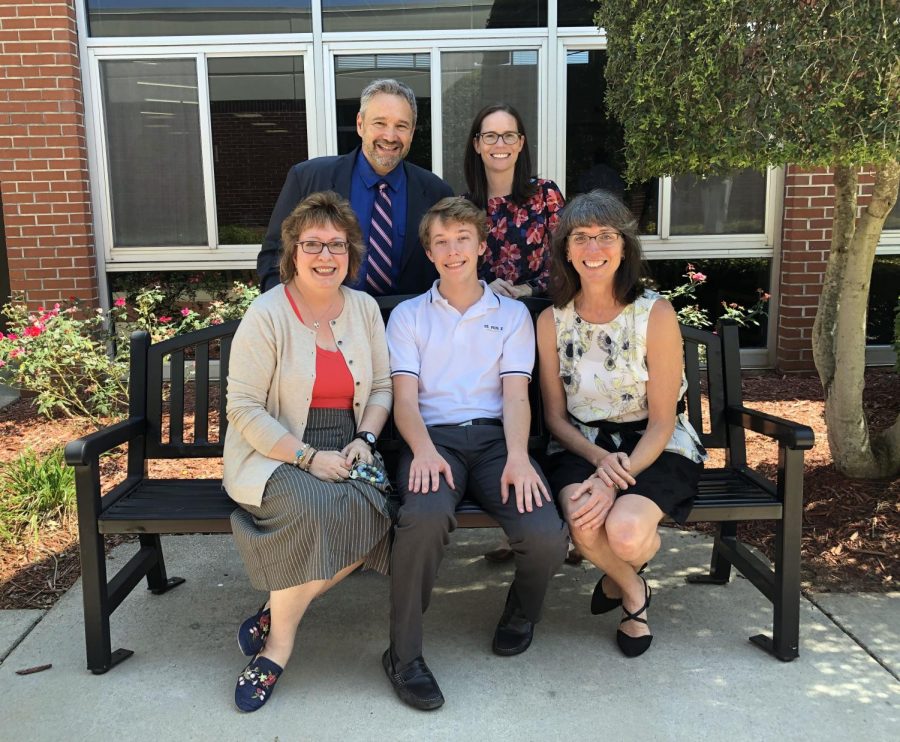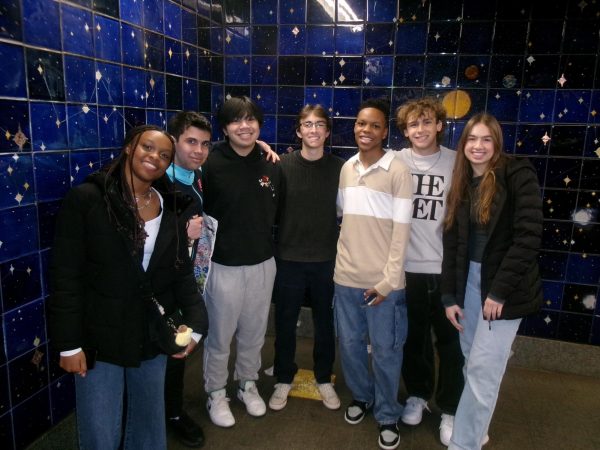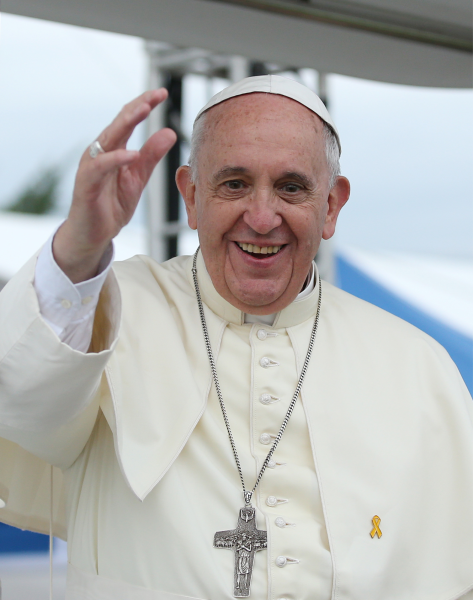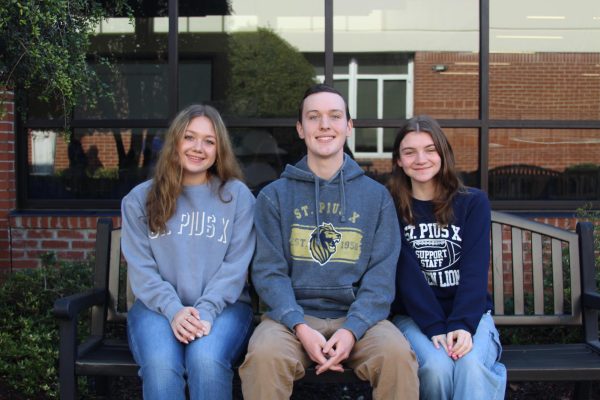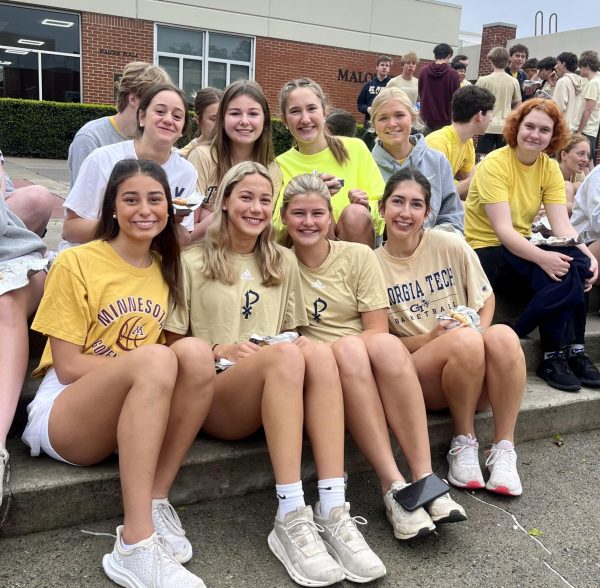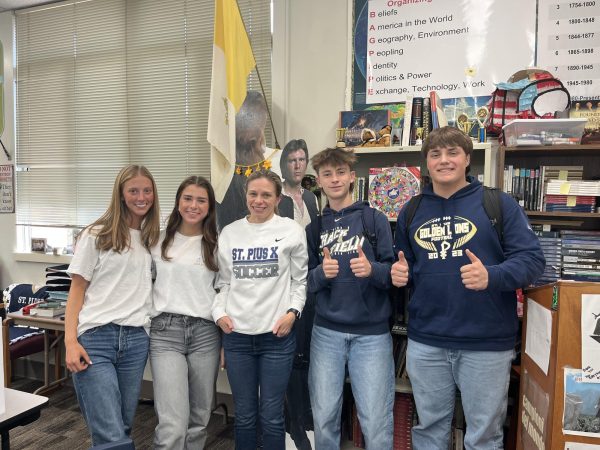Senior Witt Hollensbe earns NCTE award
Photo courtesy of Mrs. Deanna Jones
Senior Witt Hollensbe takes a picture with with his 9th, 10th, and 11th grade English teachers and his newspaper adviser. Hollensbe recently was awarded a Certificate of Superior Writing from the National Council of Teachers of English (NCTE), which recognizes the best writers in the nation.
Writing isn’t a gift that everyone has, but for senior Witt Hollensbe, it’s just a natural talent. So to Hollensbe’s teachers and peers, it came as no surprise when he earned a Certificate of Superior Writing from the National Council of Teachers of English (NCTE) last Spring.
According to the NCTE, the award is given to juniors each year “to encourage and publicly recognize the best student writers,” and schools across the United States, Canada, Virgin Islands, and American Schools Abroad are eligible to nominate students to enter the contest.
Hollensbe’s junior year AP English teacher Mrs. Jan Collier nominated him with no doubt in her mind that he was the right candidate.
“Witt is well-read on many topics and issues, and because his analysis skills are sharp, he gets underneath the obvious answers or conclusions. [His writing is] far and above what most students would be writing,” Mrs. Collier declared.
Not to mention, his teachers note that Hollensbe has something not many writers have: flair.
“Witt has flair! We know it, and now the nation knows it!” Mrs. Collier exclaimed.
In order to be considered, Hollensbe showcased his writing in three poems, two essays, and a short story. His first essay was on the NCTE’s prompt for the year, “the Human Chorus,” or how literature unites everyone.
For this essay, Hollensbe discussed Salman Rushdie’s “Midnight Children,” comparing the novel’s divisive politics of postcolonial India to those of America in an age of Trump, Twitter, and terrorism.
Next, he wrote a “satirical” essay about fake friends and red flags to look out for.
“It was practically Cosmo-worthy!” Hollensbe said, referring to the popular teen magazine.
Then, switching gears, he wrote a short story on summer camp.
“Ages 8 through 14 my parents sent me away to a born-again-Christian, super churchy sports camp for a month,” he said. “The whole thing would have been fun. Except: one, I’m not evangelical and two, I hate sports. So obviously, I had to write about it. I’ve been dying to complain. It was really just me baring my primal wound.”
Finally, he illuminated his creativity in three poems: “Staring at the Sun,” “Accompanying Goya’s Saturn,” and “Remembering.”
Hollensbe was notified over summer via email, and he said that he “screamed audibly and called my dad.” Unfortunately, his sisters were away at summer camp and he was staying with his grandparents who didn’t understand much of it.
Describing himself as “ecstatic,” Hollensbe said he felt “truly honored” upon learning he won the prestigious award.
“My teachers, my parents, and the opportunities I’ve been provided where two groups segway are the only reasons I’ve been successful… They have impacted so many facets of my life and my writing,” he said.
Hollensbe thanked all of his English teachers, especially praising Mrs. Collier. He noted that she “constantly feeds my creativity and appreciation for writing in general. I wouldn’t have written as much as I did or read as much last year without her.”
In addition, Hollensbe was notably thankful for French teacher Ms. Carrie Stockard, his freshman year English teacher.
“She helped me write in a way that was actually coherent,” he said. “I don’t know if I was saying anything before her. Not to mention my grammar was nauseating.”
Hollensbe also credited his junior year AP US History teacher Ms. Kristin Kramer and Latin teacher Ms. Laura Briscoe.
“They’re absolute icons. Both Ms. Briscoe and Ms. Kramer have taught me to pursue things that make me happy. I don’t know if they realized it, but everything they’ve done for me has made such a difference,” he explained.
“I think teachers here try to offer more than just what you find in AP standards,” Hollensbe added. “My teachers have given me an example of kindness and immaterial values that I wouldn’t have without them. How do you care about the world? What matters? How should we create ourselves in a society that is formed before us?”
Inspired by a plethora of poets and novelists such as Joan Didion, Natasha Trethewey, Audre Lorde, Walt Whitman, and Toni Morrison, Hollensbe sees writing as “applicable to [everyone’s] lives.”
“Writing and creating beauty is a universal denominator,” explained Hollensbe. “It’s like when you read Latin poetry or an old 2,000-year-old text and can relate or see part of your life in it.”
Writing has helped him in school, but more importantly, Hollensbe said his teachers have encouraged him to become a “better activist and more politically conscious,” which he knows will help him with “whatever comes next” in his life.

